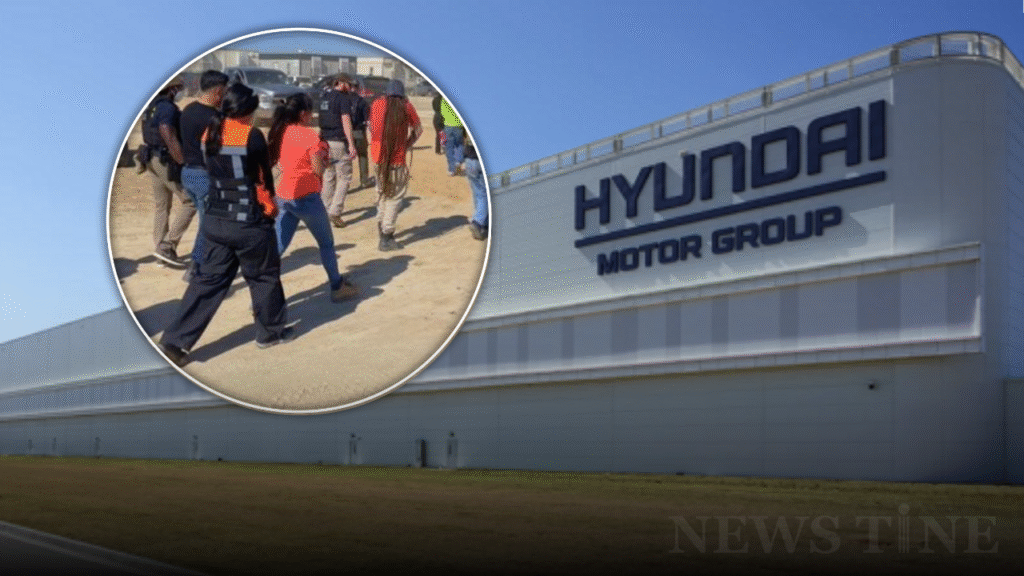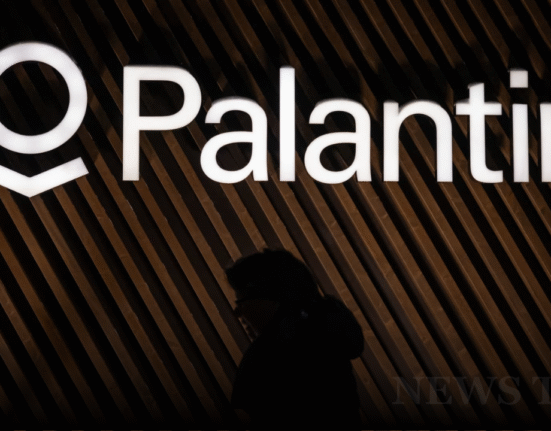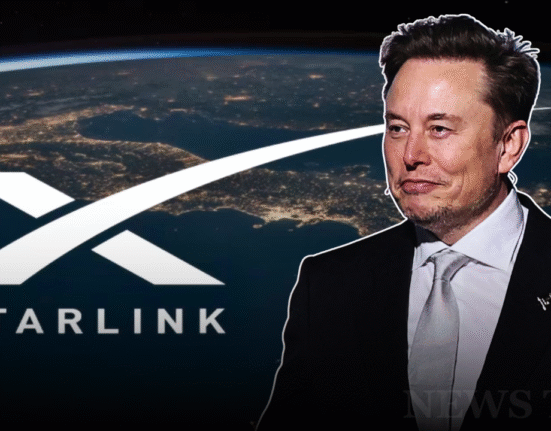
The Georgia Hyundai plant raid has become one of the most talked-about international stories this week. When U.S. immigration authorities swept into a battery factory construction site on September 4, detaining 475 workers over 300 of them South Koreans the fallout was immediate. Images of workers shackled at the wrists and ankles spread rapidly, leaving South Koreans stunned and questioning the meaning of “alliance” in U.S.–Korea relations.
What Happened in Georgia?
The raid unfolded at a Hyundai auto plant in Georgia, where a massive battery factory was under construction. According to U.S. Immigration and Customs Enforcement (ICE), many of the detained workers were either overstaying expired visas or had entered on short-term permits that did not authorize employment. Some had reportedly crossed into the U.S. without proper documentation.
- Total detained workers: 475
- South Koreans among them: Over 300
- Plant impact: Factory launch delayed, Hyundai’s EV rollout at risk
The raid was the largest single-site workplace operation carried out under the Trump administration so far.
South Korea’s Response
Foreign Minister Cho Hyun called the raid “a very serious matter” during a tense parliamentary hearing. While South Korea secured U.S. agreement to release the workers and repatriate them on a charter flight, the spectacle has left scars.
Liberal lawmaker Cho Jeongsik questioned whether South Korean companies could “continue to invest properly in the future” if their workers risk mass detention. Conservative opposition leader Kim Gi-hyeon labeled the raid “unacceptable” and a “severe blow that will be difficult to heal.”
Some politicians even suggested Seoul investigate Americans working in Korea without proper visas as a form of retaliation.
Why the Raid Matters for Business
Hyundai and other South Korean firms have poured billions into U.S. operations especially in Georgia, seen as a hub for clean energy and EV development. Just weeks before the raid, South Korea had pledged hundreds of billions in U.S. investments as part of tariff negotiations.
Yet experts warn the U.S. immigration system is colliding with its own ambitions:
- Visa limits: Highly skilled workers often cannot secure proper visas.
- Temporary loopholes: Many workers rely on visitor permits or visa waivers, which technically prohibit work.
- Operational risks: Companies face higher labor costs and project delays if they cannot bring in specialists.
Eugene Investment & Securities noted the incident could trigger labor shortages and drive up costs for U.S. projects. Daishin Securities predicted Hyundai’s EV battery production in the U.S. may face significant delays.
U.S. Perspective
President Donald Trump defended the operation, stating the workers “were here illegally” and urging companies to train U.S. citizens for technical manufacturing jobs. Homeland Security Secretary Kristi Noem framed the raid as a message to global investors: “Our laws will be enforced.”
This tough stance reflects the administration’s broader effort to enforce immigration laws while still courting foreign investment. However, analysts caution it may weaken trust with key allies like South Korea.
Public Reaction in South Korea
For many South Koreans, the images of chained workers were shocking—especially given that Hyundai symbolizes their global economic success. Editorials in leading newspapers questioned whether the U.S. can still be trusted as a business partner.
Paik Wooyeal, a professor at Yonsei University, summed it up bluntly: “The U.S. wants foreign investment but lacks the visa framework to support it.” The Georgia Hyundai plant raid isn’t just about immigration enforcement it’s a moment that could reshape U.S.–South Korea business relations. With billions of dollars and thousands of jobs on the line, both governments now face the challenge of balancing domestic laws with international trust.






